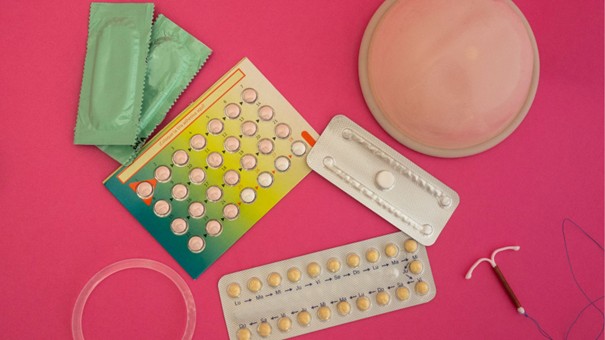
Contraception: Myths, Facts and Fun Facts
Contraception: Myths, Facts & Fun Facts – What You Really Need to Know!
Contraception affects us all – but how well do you actually understand it? Did you know, for example, that 85 out of 100 women will become pregnant within a year without using contraception? Or that a condom, according to German industry standards, must withstand 18 litres of air before bursting? 😲
Whether you prefer hormonal contraception, barrier methods, or natural alternatives, there are countless fascinating facts, bizarre historical methods, and persistent myths about birth control. Let’s explore the truths, misconceptions, and some rather unusual contraceptive practices from the past!
Contraception Through the Ages – Some Truly Unusual Methods
For thousands of years, people have been trying to prevent unwanted pregnancies – sometimes using rather questionable methods:
📜 Ancient Times:
✔ Egypt (circa 4000 BC): Women inserted a mixture of honey, sour milk, and soda into the vagina.
✔ Ancient Greece: Some believed that specific sexual positions, magic amulets, or even sneezing after intercourse could prevent pregnancy.
✔ Animal-based barriers: As early as 3000 BC, the first condoms were made from animal intestines or fish bladders.
🎩 19th Century:
✔ Women used vaginal douches after sex to “wash out” sperm – not very effective!
✔ Condoms made from cotton or animal intestines were the most common barrier method.
And today? Thankfully, modern contraception is far more reliable!
Fun Facts: Contraception Like You’ve Never Heard It Before!
😲 Some fascinating and unexpected facts about birth control:
✅ Did you know…
💡 … women who take the pill blink 32% more often on average? The hormone changes can cause drier eyes!
💡 … in Germany, 342 condoms are used every minute?
💡 … Carl Djerassi, the inventor of the contraceptive pill, chose to have a vasectomy?
💡 … frogs were used as pregnancy tests in the 1940s? A woman’s urine was injected into a frog – if the frog produced eggs or sperm within hours, the woman was pregnant! 🐸
How effective are different contraceptive methods?
The Pearl Index is used to measure how reliable a contraceptive method is. The lower the number, the more effective the method. But what does this actually mean?
✔ A Pearl Index of 1 means that out of 100 women using the method for a year, one will become pregnant.
✔ Hormonal methods, such as the pill, hormonal IUD, and contraceptive injection, have a Pearl Index of below 1, making them highly reliable.
✔ Condoms have a Pearl Index of 2 to 12, meaning that up to 12 out of 100 women will become pregnant despite using them.
So, contraception is not always as foolproof as many people assume!
Common Contraception Myths – What’s Really True?
🚫 “Contraception is a woman’s responsibility.”
❌ Wrong! While women have more contraceptive options, birth control should be a shared responsibility in any relationship.
🚫 “You need to take a break from the pill.”
❌ False! Medical studies show that taking a break offers no health benefits – in fact, it increases the risk of an unintended pregnancy.
🚫 “The pill increases the risk of thrombosis.”
✔ That’s right – the pill does come with a range of side effects, and for certain risk factors like smoking or being overweight, one of them is an increased risk of thrombosis. If you’re unsure, it’s best to speak to your doctor.
🚫 “The pill affects fertility after stopping it.”
❌ Incorrect! Fertility usually returns to normal within a few months. However, long-term pill use can lead to a folic acid deficiency, which may increase the risk of miscarriage. Experts often recommend taking folic acid and other key nutrients while using hormonal contraception.
Good to know
Whether you choose hormonal, barrier, or natural methods, every woman has the right to make informed choices about her body. Modern contraception offers many options, but staying informed and supporting your overall health is just as important.
💊 For women using hormonal contraception, supplementing with key micronutrients can be beneficial, as some contraceptive methods increase the body’s need for certain vitamins and minerals.
👉 Resilovit®pill supports your body with essential nutrients and can help compensate for deficiencies caused by hormonal contraception.
